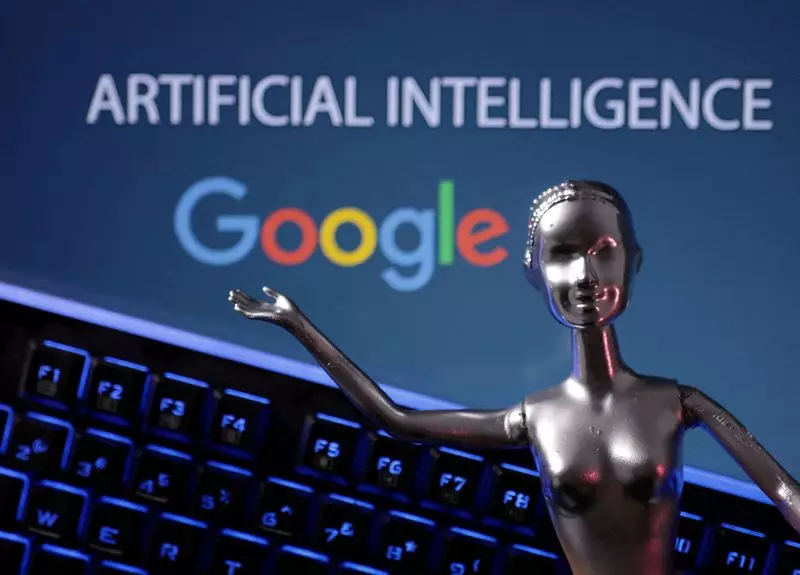The rapid evolution of artificial intelligence (AI) is prompting major tech corporations, particularly Google, to rethink their approach not only to their technological advancements but also to the public and regulatory landscape surrounding them. As regulation and scrutiny from various governments increase, Alphabet, Google’s parent company, is proactively attempting to influence the narrative around AI in order to mitigate risks while enhancing public understanding and acceptance of the technology.
The growing concern over the potential risks associated with AI, such as job displacement, ethical dilemmas, and data privacy issues, has triggered a wave of regulatory scrutiny at both national and international levels. In regions like the European Union, the push for robust AI regulations is partly encapsulated in the EU AI Act, which aims to enforce accountability by requiring disclosures from AI systems based on their risk levels. For Google, these evolving regulations present a double-edged sword: while they can restrict operational capacity, they also present an opportunity for preemptive engagement.
In the United States, the regulatory landscape is shifting as well, with the Department of Justice (DOJ) initiating actions against Google, challenging its dominant position in the search engine market. The implications of such oversight extend beyond traditional business operations; they could also impact future AI initiatives. With regulation looming, Google is understandably eager to manage its image and policies proactively to avoid the lengthy repercussions of non-compliance or public backlash.
One of Google’s primary strategies to navigate the regulatory complexity and public sentiment surrounding AI is an emphasis on education and training. Kent Walker, Alphabet’s president of global affairs, articulated the company’s belief that familiarizing both individuals and organizations, including governments, with AI will yield not only better policy outcomes but also broaden the technology’s application across sectors. This is executed through initiatives like the $120 million investment fund for AI education programs.
In a world where technological advancements often lead to job insecurity, this initiative is essential. The “Grow with Google” program offers training in technical skills necessary for employment in an increasingly digital landscape. The company’s commitment to providing one million certificates to learners indicates the scale of this initiative. Beyond standard learning models, Google includes specialized courses tailored to distinct sectors, addressing the unique needs of various professionals.
Google’s philosophy hinges on the notion that education alone is not sufficient; there must be tangible outcomes associated with the learning experience, like credentials that enhance job prospects. With AI technology advancing quickly, existing workers must upskill to maintain their relevance in the workforce. Walker’s acknowledgment of the potential disruption caused by AI highlights the importance of preparing individuals for inevitable changes in job nature.
This proactive approach includes establishing public-private partnerships designed to create pathways for employment in upcoming fields. The collaboration with community colleges through initiatives like the “Skilled Trades and Readiness” program is a prime example. By connecting educational institutions with industry needs, Google is helping to produce a workforce ready to embrace the opportunities presented by AI.
While some experts predict that AI will lead to significant job displacement, Google’s stance, bolstered by studies from reputable institutions like McKinsey and Goldman Sachs, posits that AI will fundamentally reshape but not completely eliminate many jobs. Instead, the embrace of AI technologies will likely lead to their integration into various roles, enhancing productivity and fostering new skill requirements.
To support this perspective, Google has sought the counsel of thought leaders such as economist David Autor. He underlines the importance of immersive and simulated training techniques that can elevate adult education beyond traditional classroom settings. By focusing on practical applications and real-world experiences, these training methods have the potential to evolve how people engage with learning and ultimately adapt to the changing job market driven by AI.
As Google continues to navigate the intricate maze of regulation and public sentiment surrounding artificial intelligence, its focus on education, public-private partnerships, and a forward-looking perspective on job transformation sets a proactive precedent for other tech giants. By taking decisive steps to demystify AI and demonstrate its benefits, Google aims not only to influence policymaking but also to ensure a smoother transition for the workforce. Ultimately, as AI integration becomes more ubiquitous, visionary efforts like Google’s could play a crucial role in determining the overall impact of this technology on society.

